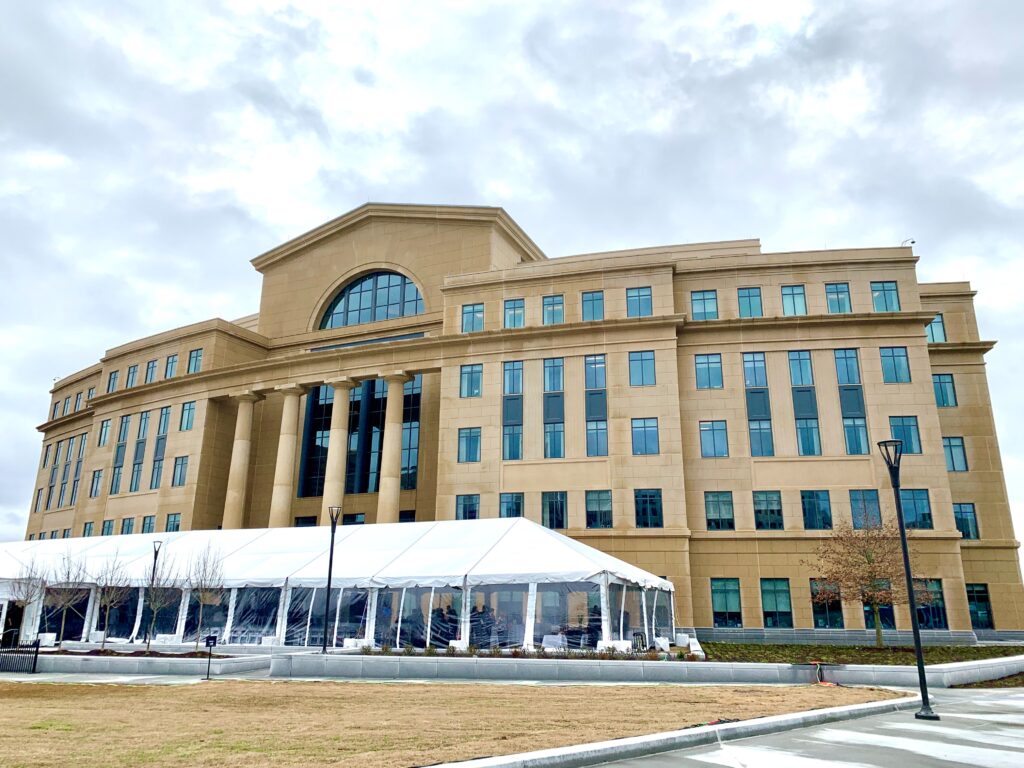
ATLANTA – Whether a landowner whose property is damaged by the state can sue to stop the activity causing the damage was debated in the Georgia Supreme Court Tuesday.
Ware County landowner Cathy Mixon sued the state Department of Transportation (DOT) in 2018 claiming the widening of a road adjacent to her property has caused repeated serious flooding, diminishing the land’s value.
The lawsuit seeks damages and an injunction to prevent “future nuisance and continual trespass” based on the Takings Clause of the Georgia Constitution.
The DOT asked the trial court to dismiss the case based on the doctrine of “sovereign immunity,” which protects the state from being sued without its consent or a waiver approved by the General Assembly.
The agency lost before both the trial court and the Georgia Court of Appeals, leading it to take the case to the state Supreme Court.
On Tuesday, Senior Assistant Attorney General Loretta Pinkston-Pope argued an 1877 amendment to the Georgia Constitution permits property owners to sue for damages if their land has been damaged by the state. However, the so-called Takings Clause does not allow plaintiffs to seek injunctive relief that could prevent a public project from going forward, she said.
“Later cases clearly followed this line of reasoning,” Pinkston-Pope said.
But Douglas Gibson, Mixon’s lawyer, said Georgia cases going back to 1885 do allow property owners to seek injunctive relief.
While the lawsuit also seeks monetary compensation, Gibson argued an injunction is needed to stop a “continuing nuisance” on his client’s land.
“Water is being dumped on us because [the DOT] stopped up a ditch,” he said. “We want them to stop water backing up on us by fixing the drainage.”
Gibson said the Takings Clause waives sovereign immunity for claims for injunctive relief.
But several justices seemed skeptical. Justice Charlie Bethel pointed out that the highway widening project at issue in the case has been completed.
“How do I get an injunction at this point with a finished project?” Bethel asked Gibson.
Bethel went on to suggest Mixon’s claim should be limited to seeking damages.
The 2018 lawsuit predates a recent change in Georgia law governing sovereign immunity. Voters approved a constitutional amendment last November that prohibits the state and local governments from citing sovereign immunity to keep citizens from suing them when government officials commit unconstitutional actions.
